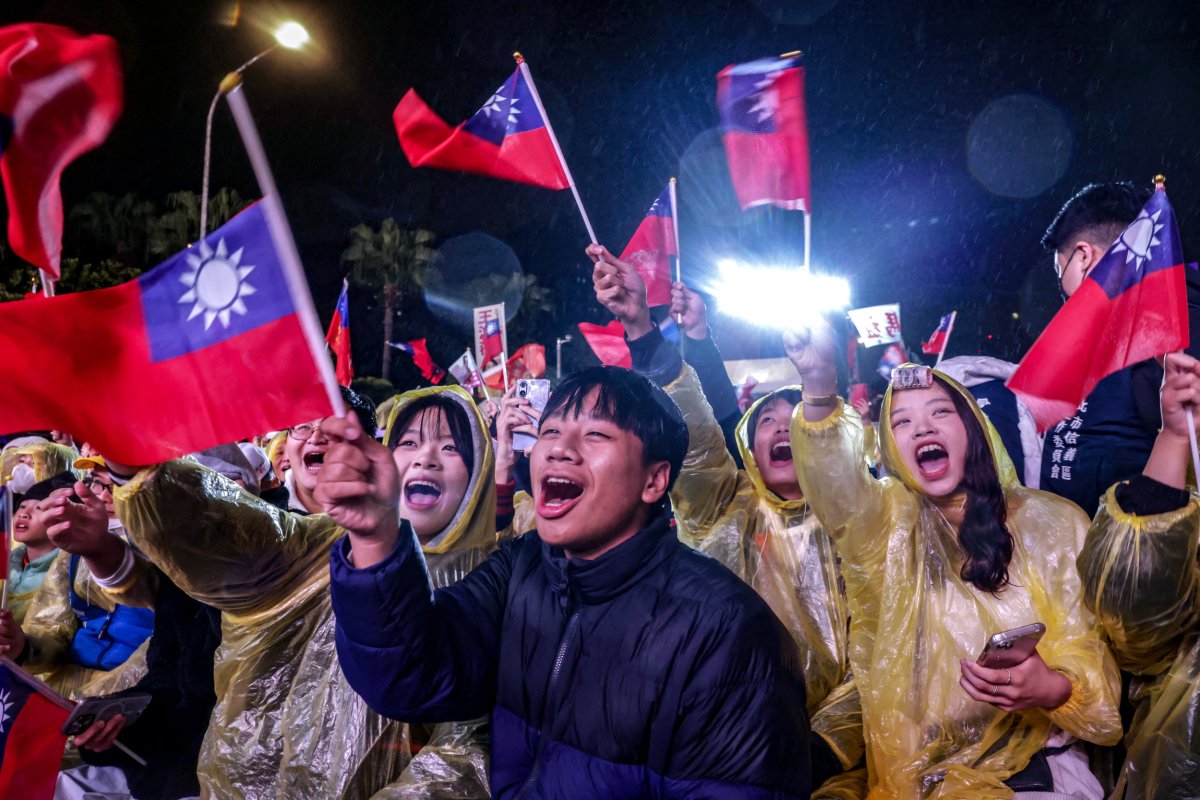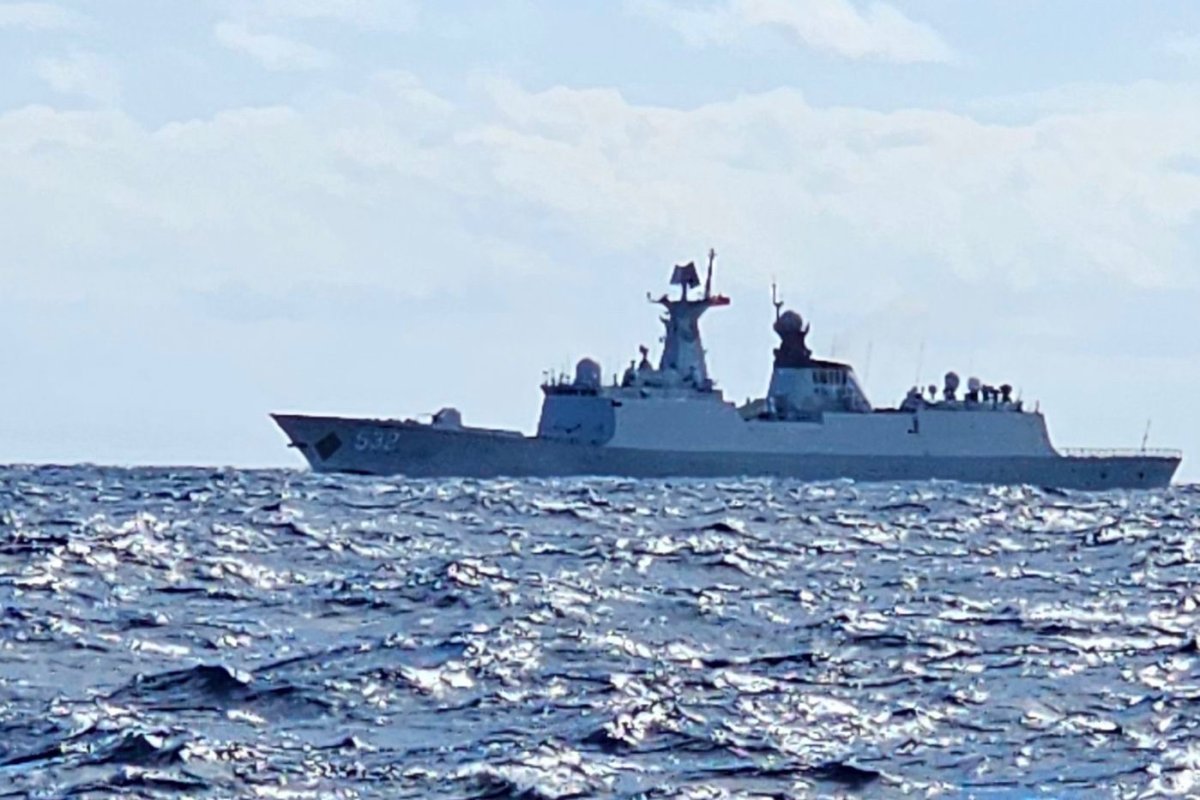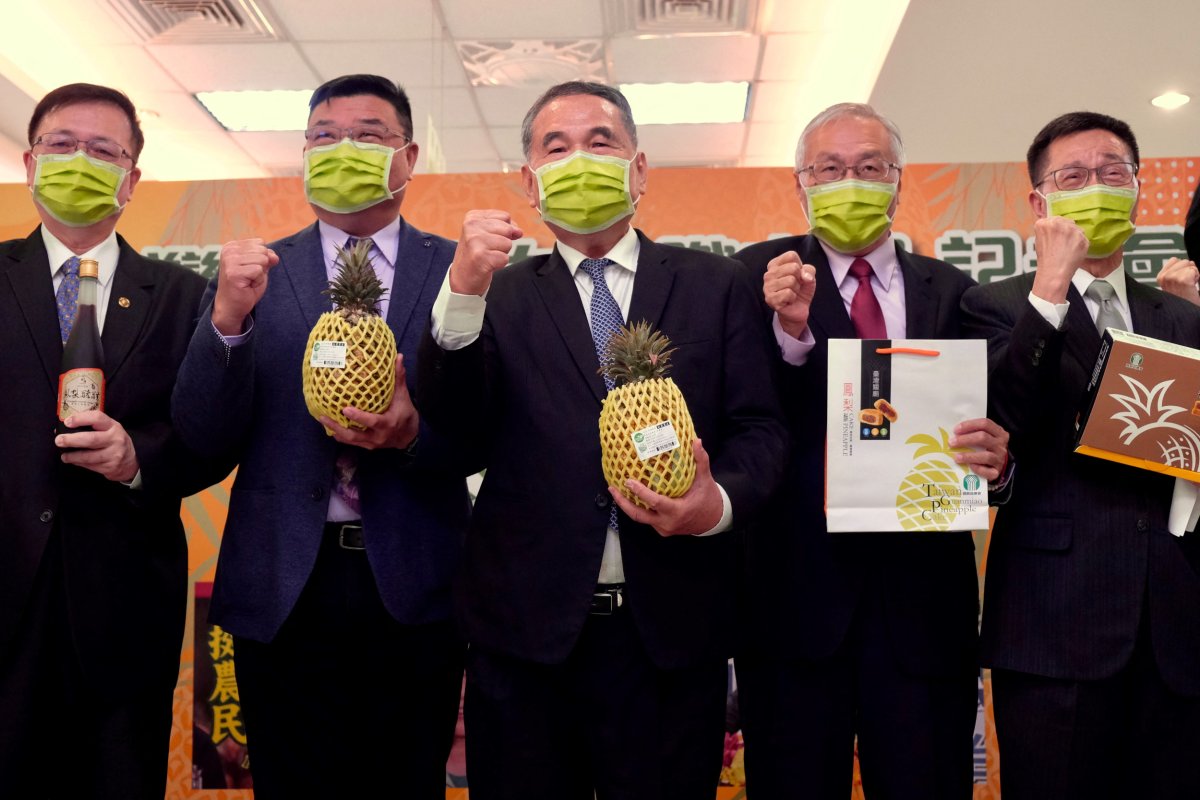Micah McCartney
As Taiwan prepares for its eighth presidential election since democratization, the island is facing increasingly varied and sophisticated attempts by China to influence the outcome of the contest.
The poll on January 13 will determine who becomes only the fifth directly elected president of the nation of 23 million people since 1996.
Voters will also have a say in which party controls the legislature, shaping the course of the island's two most important relationships: China, which has framed the contest as a choice between peace and war, and the United States, Taiwan's largest security provider and advocate on the world stage.
Joseph Wu, Taiwan's foreign minister, urged international vigilance against Beijing's efforts to interfere in its electoral process. In an interview with The Economist published Wednesday, Wu said Taiwan was on the front line of Chinese authoritarian expansionism.
The following are both conventional and innovative ways China has sought to sway Taiwanese public opinion in the current election cycle.
Economic Warfare
Weaponizing two-way trade across the Taiwan Strait has been one of China's favorite tactics to squeeze Taiwan in recent years.
On December 15, China's Commerce Ministry listed more than 2,000 "trade barriers" it said the Taiwanese government had placed on Chinese products. The ministry has hinted at retaliation, fueling suspicion Beijing was waiting for the right moment to hurt Taipei's ruling Democratic Progressive Party among its traditional support base in the island's agricultural heartland ahead of the elections.
On December 27, Beijing said it would enact trade sanctions if the DPP continued to support "Taiwan independence," over which China's leaders have previously said they would go to war. President Tsai Ing-wen, first elected in 2016, has maintained that Taiwan is already a sovereign country, ruling out a declaration of de jure independence.
In 2021, China began to introduce a series of bans on Taiwanese agricultural products due to the alleged discovery of pests or harmful chemicals. Pineapples, sugar apples and groupers were among the banned produce, although it resumed shipments of the latter two in 2023.
In August last year, China suspended imports of Taiwan-grown mangoes, again citing pests. It was a political move, coming days after Taiwan's Vice President Lai Ching-te—now the presidential front runner—made brief stops in New York and San Francisco.
China claimed the transits violated the U.S.'s "one China" policy, under which Washington and Taipei maintain no formal diplomatic relations. The White House disagreed.

Supporters attend a Kuomintang campaign rally ahead in Taipei on December 23, 2023. The party will face off against the ruling Democratic Progressive Party and the minor opposition Taiwan People's Party in Taiwan's national elections on January 13, 2024.
Military intimidation
In his resolute New Year's Eve address, Chinese leader Xi Jinping declared that Taiwan, which Beijing views as part of China's territory—will "surely be unified" with the mainland.
Since 2020, the Chinese People's Liberation Army has conducted several high-profile exercises near the island, simulating an amphibious invasion of Taiwan and a future blockade.
The superpower has also sent numerous warplanes and warships across the median line of the Taiwan Strait and into Taiwan's surrounding airspace, in near-daily maneuvers analysts believe amount to a form of psychological warfare.
Beijing "seeks to erode the confidence of the Taiwanese people in their ability to defend their way of life," Bonnie Glaser, managing director of the Indo-Pacific Program at the German Marshall Fund of the United States, previously told Newsweek.
Perks in China
Prosecutors in Taiwan are cracking down on local officials suspected of accepting bribes in the form of paid visits to China, typically involving all-expenses-paid guided tours, accommodation and meals—offered in exchange for their support for pro-Beijing policies at home.
Taiwanese media reported last month that at least eight local officials in the central city of Taichung had been detained and their phones and other evidence seized. Authorities said accepting China's "hospitality" violated the Anti-Infiltration Act of 2019, introduced to "prevent external forces from infiltrating Taiwan's democracy."
In addition, Taiwanese authorities have questioned than more than three dozen neighborhood chiefs about suspected paid trips offered to them and their families ahead of the elections.

The Chinese People’s Liberation Army Navy’s Type 054A frigate Jingzhou is photographed in the waters east of Taiwan on December 14, 2023. A flotilla of three PLA Navy vessels sailed north past the island, ship spotters said.
Pressure on Expats
Taiwanese expatriates living in China are believed to be under pressure to support the main opposition Kuomintang party, which is traditionally viewed as being on friendlier terms with the Chinese government than is the ruling DPP.
A Taiwanese businessman living in China allegedly asked other businesspeople from Taiwan to each donate a minimum of $330 to the KMT, according to a report on Monday by the Taipei Times newspaper.
Posting in a private social media chat group, the businessman is said to have instructed individual donors to provide their names and other personal information, raising concerns that they might be subject to reprisal if they chose not to give money to China's preferred party.
"It is Beijing's way of saying: 'If you want to do business in China, you have to donate to the KMT and vote for the KMT,'" the report cited one DPP legislator as saying.
An association representing Taiwanese business groups in China has denied the allegations.
Digital Influence
"Taiwanese society has become an important experimental field for China's influence operations," Wang Chan-Hsi, an associate researcher at Taiwan's top military think tank, the Institute for National Defense and Security Research, told Newsweek.
The disruption in people-to-people exchanges caused by COVID-19 pandemic led Beijing to hone digital means of infiltrating Taiwanese society, combining them with traditional methods and united front work.
In addition, Russia's information operations following its invasion of Ukraine in 2022 also bolstered China's understanding cognitive warfare, Wang said. In August that year, Taiwan created an information policy-making Ministry of Digital Affairs to regulate cybersecurity.
Among the concerning trends is the rise of deepfakes, images in which a person's appearance or words have been digitally altered with the aid of artificial intelligence and machine learning.
The technology—now more accessible than ever through open-source software—has opened up another front in election interference, serving the dual purpose of harming the image of China's political opponents in Taiwan while consuming the finite resources of local law enforcement, Wang said.
In August, the minor opposition Taiwan People's Party filed a report with the island's Investigation Bureau over an allegedly altered "crude and egregious" audio recording of party founder and presidential nominee Ko Wen-je, who was purportedly criticizing Lai's controversial U.S. layovers.
On Wednesday, DPP lawmaker Lo Chih-cheng said he had been the victim of deepfake pornography that was making the rounds online.
Social Media Disinformation
China's influence operations are increasingly capitalizing on the algorithms of social media platforms like YouTube, Facebook and TikTok to disseminate a plethora of short videos filled with messaging that favors the Chinese Communist Party, according to Wang of INDSR.
This content is fine-tuned to specific demographics, such as older voters who, according to Princeton University researchers, are more susceptible to disinformation, as well as younger viewers whose political identity has not yet solidified.
In addition, Chinese agents use online platforms to give financial backing to collaborators in Taiwan and to encourage internet celebrities to peddle pro-China narratives in exchange for cash, Wang said. These hard-to-trace money flows are more difficult for the Taiwanese government to counter.

Officials from the Agriculture Bank of Taiwan pose at a press conference to promote domestically grown pineapples and their exports at the bank's headquarters in Taipei on March 5, 2021. China banned Taiwanese pineapple imports in March of that year over alleged pests, a move Taipei said was politically motivated.
Tim Niven, research lead for the Taipei-based NGO Doublethink Lab, told Newsweek that the influence operations targeting Taiwan were trending more toward "amplifying local collaborators and extreme pro-China voices."
Attacks and other forms of propaganda that clearly originate in China were "less effective and carry the risk of attribution," he said.
In one example last February, fake quotes attributed to U.S. President Joe Biden, who was purportedly plotting the "destruction of Taiwan," were picked up by a pro-Beijing Taiwanese influencer and former KMT legislator, who shared it on Facebook.
The false statement proceeded to go viral on Chinese media before being "laundered" by media companies in Taiwan, Niven said, in a classic example of a disinformation loop.
The remaining days before the election could witness "more dramatic cases," he said. "The closer these things happen to election day, the more effective they are likely to be, and the less time government and civil society have to investigate and respond."
Last month, social media analytics firm Graphika said it had uncovered a large-scale, coordinated effort to manipulate political debate online ahead of Taiwan's elections.
Its investigation identified more than 800 "inauthentic" Facebook profiles and 13 Facebook pages sharing content framed to support the opposition KMT. Graphika acknowledged, however, that it was unable to pinpoint the source.
No comments:
Post a Comment